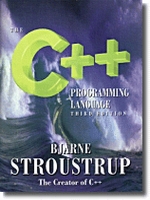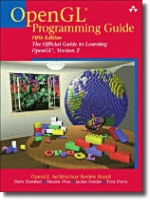After talking about the history and compilers it is time to make our first program. We like to make C programs under Linux, so we will use a text editor and the gnu compiler. But all programs we make in these tutorials will also work under Windows. Remember, the examples included in the C and C++ tutorials are all console programs. That means they use text to communicate. All compilers support the compilation of console programs. Check the user’s manual of your compiler for more info on how to compile them. (It is not doable for us to write this down for every compiler). More »
Posted in C Tutorials |
A compiler is a program that translates one language (high level) into another language (e.g., assembly language or machine specific language). A compiler translates source code (plain text) into object code (normally in a form suitable for processing by other programs (like a linker)). The most common reason for wanting to translate source code is to create an executable program.
After the compiler translates the source code in object code, the object(‘s) have to be linked into an executable. This is done by a program called a linker (in most cases the compile stage and link stage are done automatically. It is also possible to do these stages separately). More »
Posted in C Tutorials |
The C programming language was devised in the early 1970s by Dennis M. Ritchie an employee from Bell Labs (AT&T).
In the 1960s Ritchie worked, with several other employees of Bell Labs (AT&T), on a project called Multics. The goal of the project was to develop an operating system for a large computer that could be used by a thousand users. In 1969 AT&T (Bell Labs) withdrew from the project, because the project could not produce an economically useful system. So the employees of Bell Labs (AT&T) had to search for another project to work on (mainly Dennis M. Ritchie and Ken Thompson).
More »
Posted in C Tutorials |
The Open Graphics Library (OpenGL) is a standard specification defining a cross-language, cross-platform Application Program(ming) Interface (API). OpenGL provides the programmer an interface to the graphics hardware. OpenGL is a powerful, low-level rendering and modelling software library.
With OpenGL it is possible to produce 2D and 3D graphics applications.
OpenGL is widely used in video games, CAD, scientific applications, etc, on many different platforms.
More »
Posted in OpenGL Tutorials |
The DirectX Application Program(ming) Interface (API) contains a collection of routines, protocols and tools for building software applications. A good API makes it easier to develop a program by providing all the building blocks.
The DirectX API can handle tasks related to multimedia, especially game programming, on Microsoft platforms (such as Windows Xp, Windows Vista, Sega Dreamcast, Microsoft Xbox and Microsoft Xbox 360). More »
Posted in DirectX Tutorials |
In this episode of book reviews we look at two books: “The C++ Programming Language by Bjarne Stroustrup” and “The C Programming Language by Kernighan an Ritchie”.
The C++ Programming Language by Bjarne Stroustrup

This is an excellent book from the creator of the C++ language Bjarne Stroustrup.
But you should be warned! If you are looking for a book to learn C++ language from scratch, you should not choose this book.
(Beginners should look for the book: C++ Primer Plus).
This is an excellent book for people who are already familiar with the concepts and syntax of the C++ language. (All the concepts and syntax are richly explained.)
Because of the way it is written (meticulous, lots of detail on one page, etc) this is not a book for the absolute beginner or novice programmers. More »
Posted in Programming Book Reviews |
In this episode of book reviews we look at five books: “OpenGL Programming Guide”, “OpenGL Shading Language”, “More OpenGL Game Programming”, “Focus On 3D Terrain Programming” and “OpenGL Game Programming”.
OpenGL Programming Guide

Great book for learning OpenGL from begin to end!
The book is well structured and is easy to follow.
The book also contains a lot of examples that are well explained.
After learning OpenGL you will pick this book up many times to take another look at the examples.
(This book is an excellent reference guide.)
OpenGL Programming Guide is a book you must have when working on OpenGL programs. More »
Posted in Programming Book Reviews |
In this episode of book reviews we look at two books: “Game Programming Gems Series” and “Real-Time Collision Detection”.
Game Programming Gems Series

These are great books. Every year the development community is asked for papers on state-of-the-art techniques.The best papers are bundled in a book.
One warning: these articles were written by professionals (or almost professionals).
So don't expect that they teach you how to program games.
(They show you how to produce the different effects using the latest techniques).
Sections (many topics per section): Programming techniques, mathematics, Artificial Intelligence, Polygonal techniques, Pixel Effects and much more.
These books are a must-have for all who are serious about game programming.
There are six books in this series. They now are working on book seven.
More »
Posted in Programming Book Reviews |
In this episode of Did you know…? we take another look at some common coding mistakes.
- Undeclared Functions
- Extra Semicolons
More »
Posted in Programming Tips |
In this episode of Did you know…? we look at some common coding mistakes.
- Undeclared Variables
- Uninitialized Variables
- Setting a variable to an uninitialized value
- Single equal sign to check equality
More »
Posted in Programming Tips |


